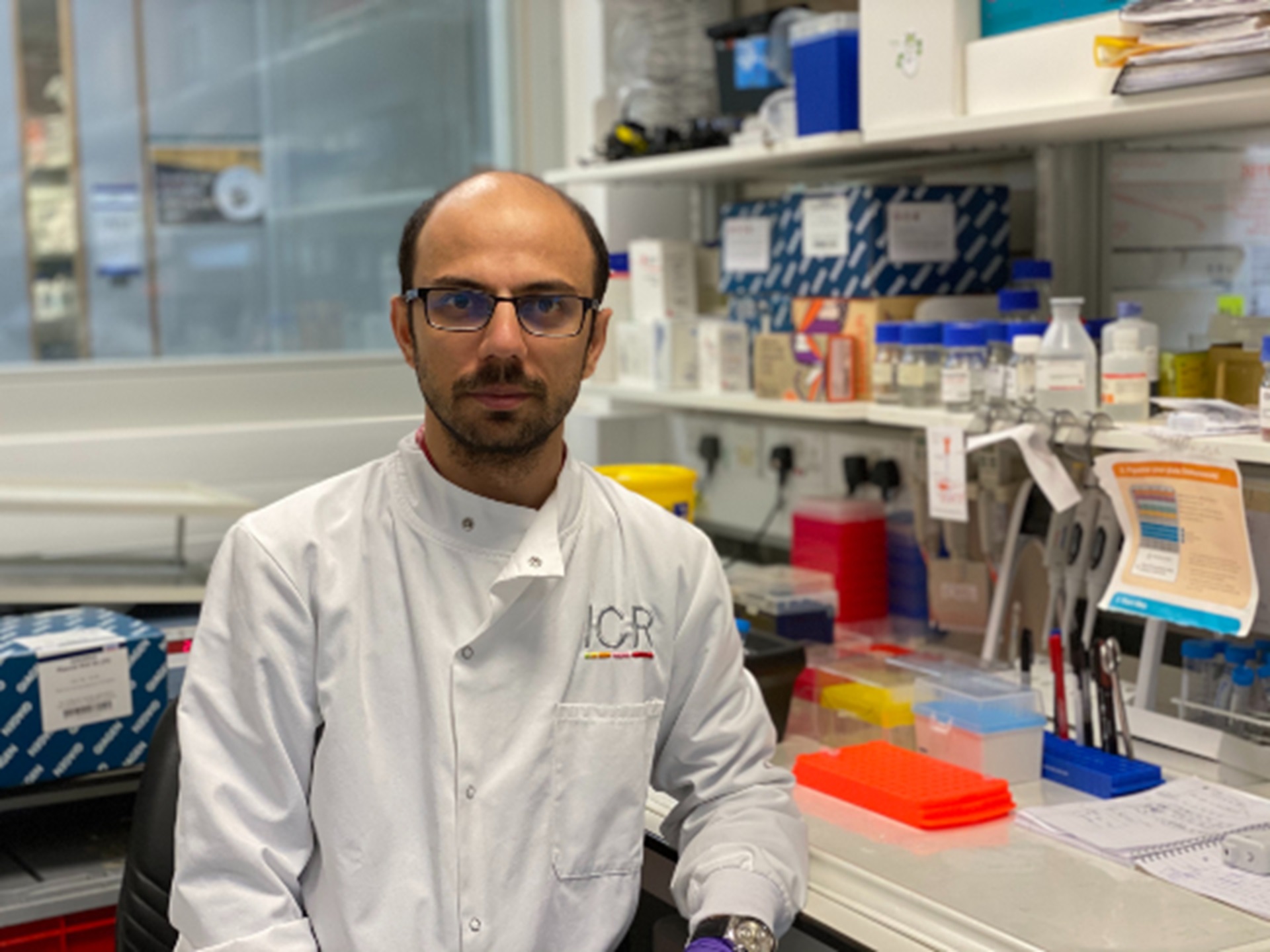Muhammed Kocak is a PhD student in the Division of Structural Biology at the ICR. His project focuses on understanding a waste disposal system used by cells called ‘autophagy’. He is investigating how specific molecules involved in this process may contribute to cancer development and drug resistance.
What is your educational/work background?
I studied for my undergraduate degree in Molecular Biology & Genetics at the Istanbul Technical University, followed by an MSc in Molecular Biology, Genetics and Bioengineering Program at Sabancı University in Turkey. I then won a European scholarship (DRIVE), which enabled me to pursue my PhD at the ICR.
Why did you want to study at the ICR?
I knew that the ICR has a great reputation for cancer research, and I thought that working in such a world-renowned centre would allow me to build the right vision about the true nature of cancer and how to defeat it.
Talk us through your typical day
I walk half an hour from where I live into the ICR’s laboratories in Sutton, which helps my body to wake-up and be ready for conducting the experiments that I’ve planned that day. I spend most of my time doing experiments, using incubation times to answer emails, write up my lab journal, or catch-up with colleagues. Later, I will spend time analysing my data and reading research papers and then embark on cooking or one of my leisure activities.
What big projects are you working on?
Over the past two years, I have optimised a method for isolating organelles called autophagosomes from cancer cells, which are the key player in the autophagy process. Now, I’m working on understanding how cancer cells can manipulate which cellular components get destroyed to contribute to their growth and drug resistance.
What are you most proud of?
I am proud of the decision that I made to go abroad to pursue my academic career. I forced myself to leave my comfort zone and dive into so many uncertainties in another country. Although, people in the ICR made this transition so easy for me with their friendship and kindness, I genuinely feel proud to take the first step towards this adventure.
How do you take part in life at the ICR outside your studies?
I am a Student Wellbeing Advisor which involves being a listening ear for people, as well as raising their concerns in confidence at the ICR’s wellbeing meetings. I am one of the first informal points of contact for people to come and discuss any kind of issues they’re experiencing.
As part of my funding, I attend and present at conferences with other students funded by DRIVE. This allows me to discuss and promote my work at the ICR. I have also helped at a busy water station on the MoonWalk London, a charity fundraising event that helps to raise money for breast cancer research at the ICR. I also enjoy team activities such as bowling, hiking, and eating out.
Who do you collaborate with at the ICR and elsewhere?
Within the ICR, I work closely with colleagues who help me to progress my projects faster. I am also part of a European network to train young scientists (PhD students like myself) in applied autophagy research. I collaborate with the supervisors and students and I join regular meetings in different European cities where I get the opportunity to present my work and get input from top researchers. I have also spent time at a laboratory in Finland learning electron microscopy.
What opportunities has studying at the ICR given you?
Working at the ICR offers many opportunities for my career development, and I am glad to be surrounded by curious minds working in cancer research.
What’s your favourite part of life at the ICR?
As a researcher, the best part of life at the ICR is getting exciting and inspiring results from the experiments, which motivates me to grow and progress my project.
What do you do to wind down?
Before the introduction of COVID-19 measures, I used to play football and do fencing once a week. Nowadays, I spare my energy to improve my cooking and baking skills. I am aiming to bake appetising muffins.
